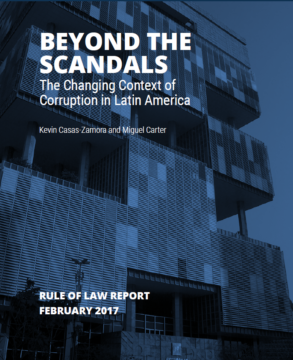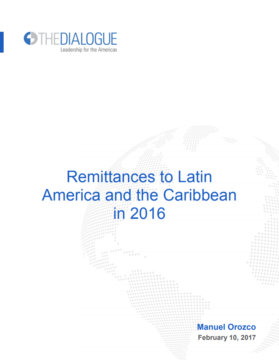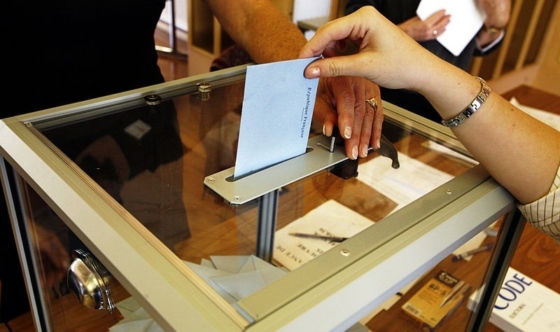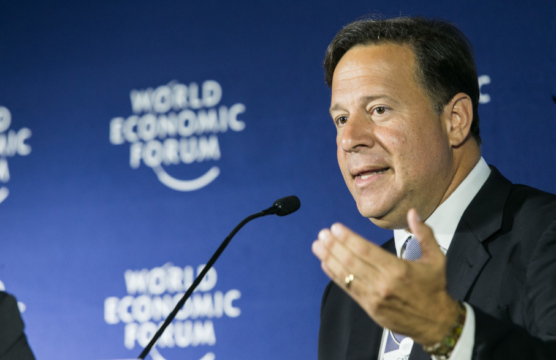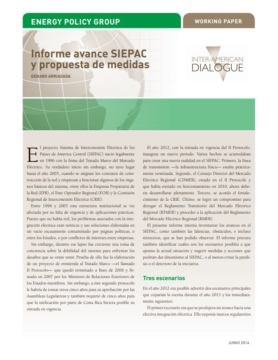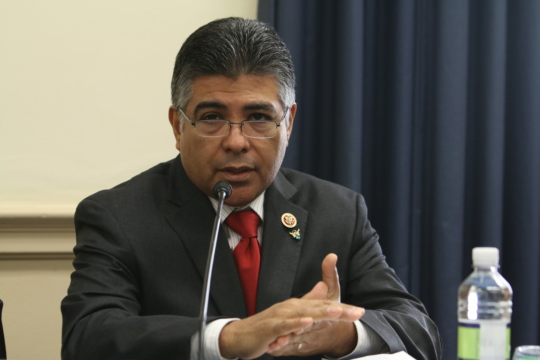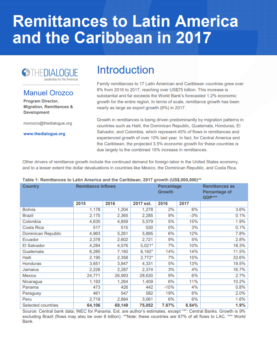
Report: Remittances to Latin America and the Caribbean in 2017
Remittances to Latin America and the Caribbean grew over 8% in 2017, according to new research by the Inter-American Dialogue.
Remittances to Latin America and the Caribbean grew over 8% in 2017, according to new research by the Inter-American Dialogue.
On October 3, the Inter-American Dialogue hosted an event entitled “How Insecurity Shapes Daily Life in Central America” to discuss a report recently published by the Inter-American Dialogue and the Latin American Public Opinion Project (LAPOP) on crime avoidance in Central America. The event was moderated by Michael Shifter, with the speakers including Elizabeth Zechmeister, Carole Wilson, Michael Camilleri, and Juan Gonzalez. The panel discussed the report’s methodology and findings, as well as some of the broader implications of the research for policymakers in Latin America and the United States.
New research from the Inter-American Dialogue and the Latin American Public Opinion Project (LAPOP) shows how crime avoidance influences everyday behaviors and has significant consequences for education, economic opportunity, development, and the rule of law—and help explain why intentions to migrate have risen sharply in every Central American country.
To discuss China’s diplomatic ties with Panama, CGTN’s Wang Guan talked with Bruno Binetti.
Historical legacies of civil war and poorly performing economies within the context of globalization have shaped Central American Migration.
On June 21, the Inter-American Dialogue was proud to host Juan Carlos Varela, sitting President of Panama, to discuss a variety of issues with Dialogue President, Michael Shifter. The hour-long conversation focused on confronting the current challenges in Central America, combating corruption and violence in Panama, the recent severing of ties between Taiwan and Panama, and looking ahead to next year’s Summit of the Americas in Peru.
Analyzing Panama’s shifting foreign policy and economic ties, CGTN’s Rachelle Akuffo spoke with Margaret Myers, director of the Latin America and the World Program at the Inter-American Dialogue.
On May 9th, 2017, the Dialogue hosted an event with Kevin Casas-Zamora, Sarah Chayes, and Carlos Santiso, on how accountability reforms have changed Latin America’s fight against corruption.
What plausible explanations are there for the unprecedented, anti-corruption social and institutional reactions recently seen in Latin America?
In 2016, the flow of remittances to Latin America and the Caribbean surpassed US $70 billion. In the 20 countries for which there is data available, the flow reached US$69 billion. This increase demonstrates continued growth since the post-recession period. In this article, we find a range of factors shaping this growth,
In the year-long period from November 2013 to November 2014, presidential elections will occur in nine Latin American countries.
Varela confronts a complicated political landscape dominated by his predecessor, whose party maintains a majority in Congress.
El estudio analiza los avances del proyecto Sistema de Interconexión Eléctrica de los Países de América Central (SIEPAC) y enumera los obstáculos que a la fecha impiden su exitosa implementación. El autor aborda los desafíos tanto políticos como económicos que enfrentan los países centroamericanos y proponen un plan de acción que incluye medidas para facilitar la coordinación internacional, fortalecer a las instituciones que encabezan el desarrollo y operación de la matriz eléctrica regional, y crear un marco seguro para el surgimiento de nuevos contratos de largo plazo.
What factors propelled Varela to victory? What will be Varela’s biggest challenges?
On February 28, 2014, the Inter-American Dialogue organized a Capitol Hill conference on pressing issues in Central America and Mexico.
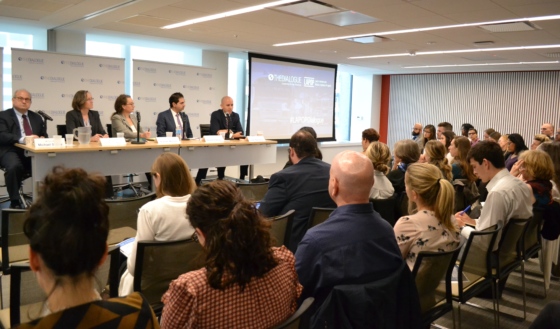 Video
Video
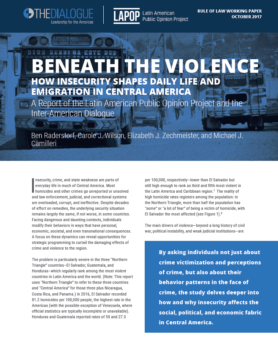
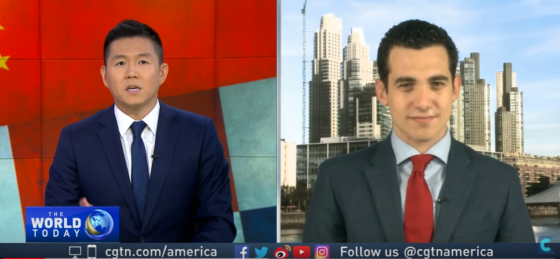 Video
Video
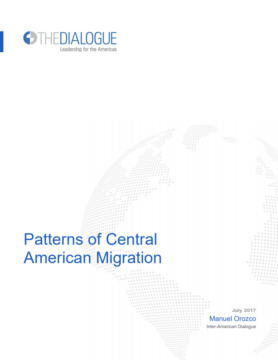
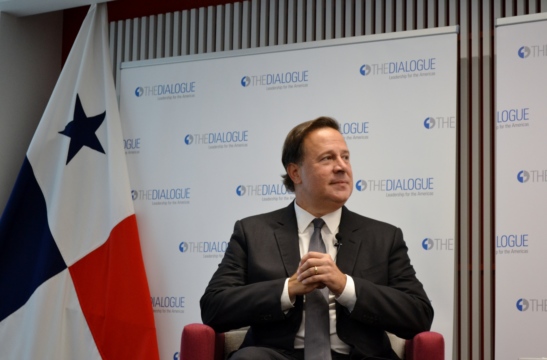 Video
Video
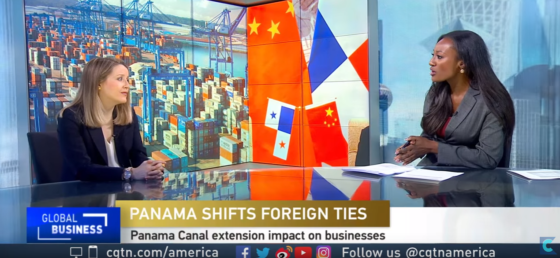 Video
Video
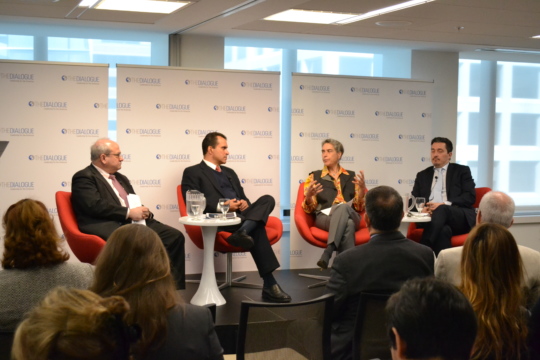 Video
Video
